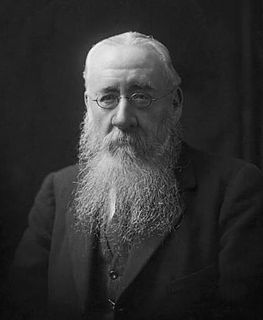A Quote by George Saintsbury
But the eighteenth century, on the whole, loathed melancholy.
Quote Topics
Related Quotes
What makes 'The Marriage of Souls' such a wonderful book is Collins's intricate reconstruction of the late eighteenth-century world. Simplicity and philosophy are the hallmarks of eighteenth-century art and architecture. The classically pure lines look deceptively simple and unburdened by heavy symbolism or imagery.
In the 19th century, the English were loathed. Every memoir that you read of that period, indicates the loathing that everybody felt for the English, the only difference between the English and Americans, in this respect, is the English rather liked being loathed and the Americans apparently dislike it intensely.
It is time... to end the long-standing and unproductive methodological debate over 'originalism' versus 'dynamism' or 'evolution' and focus instead on how, as a substantive matter, we should interpret the Constitution in the twenty-first century, and what it has to say on questions unimaginable to our eighteenth-century Framers.






































